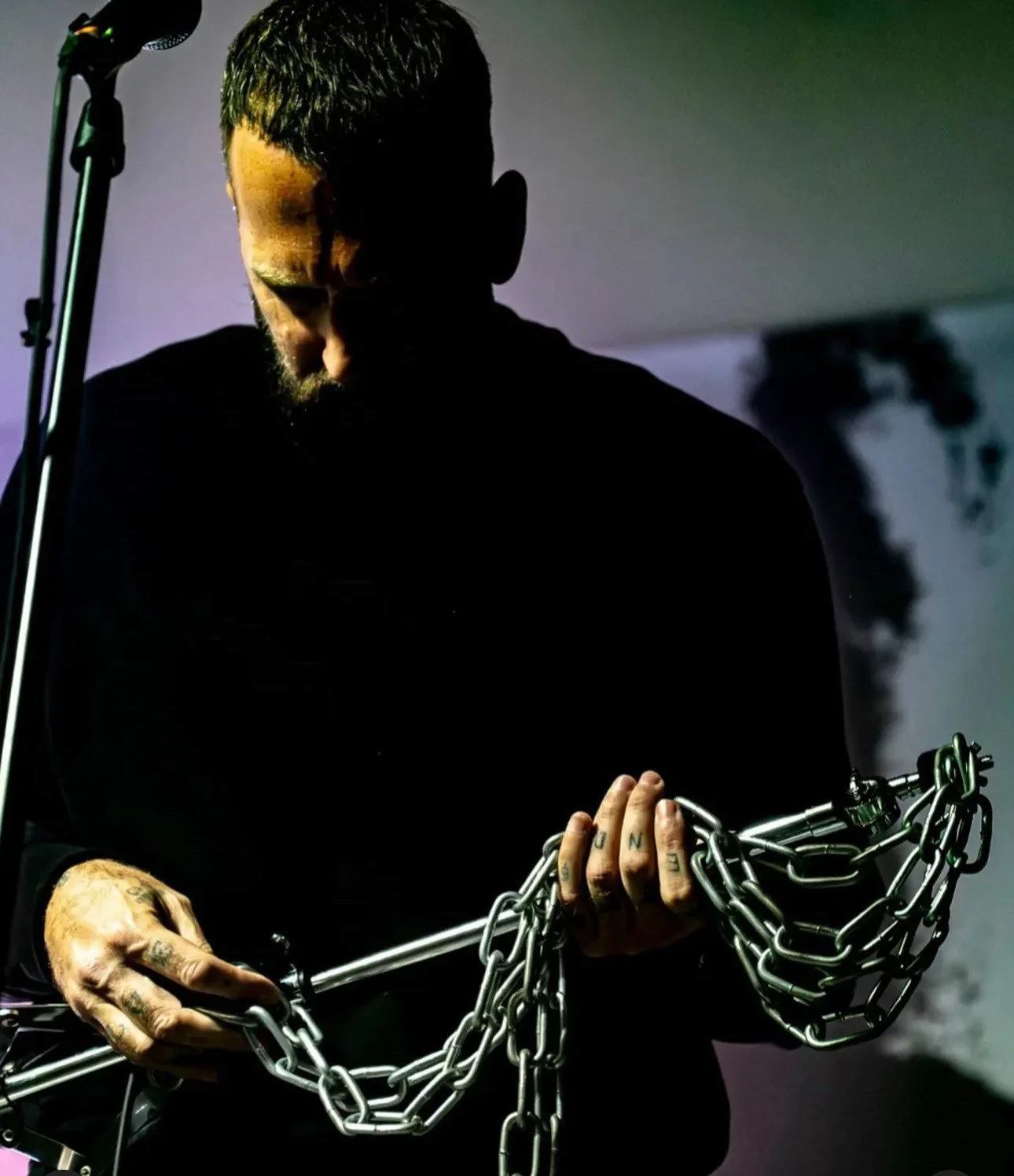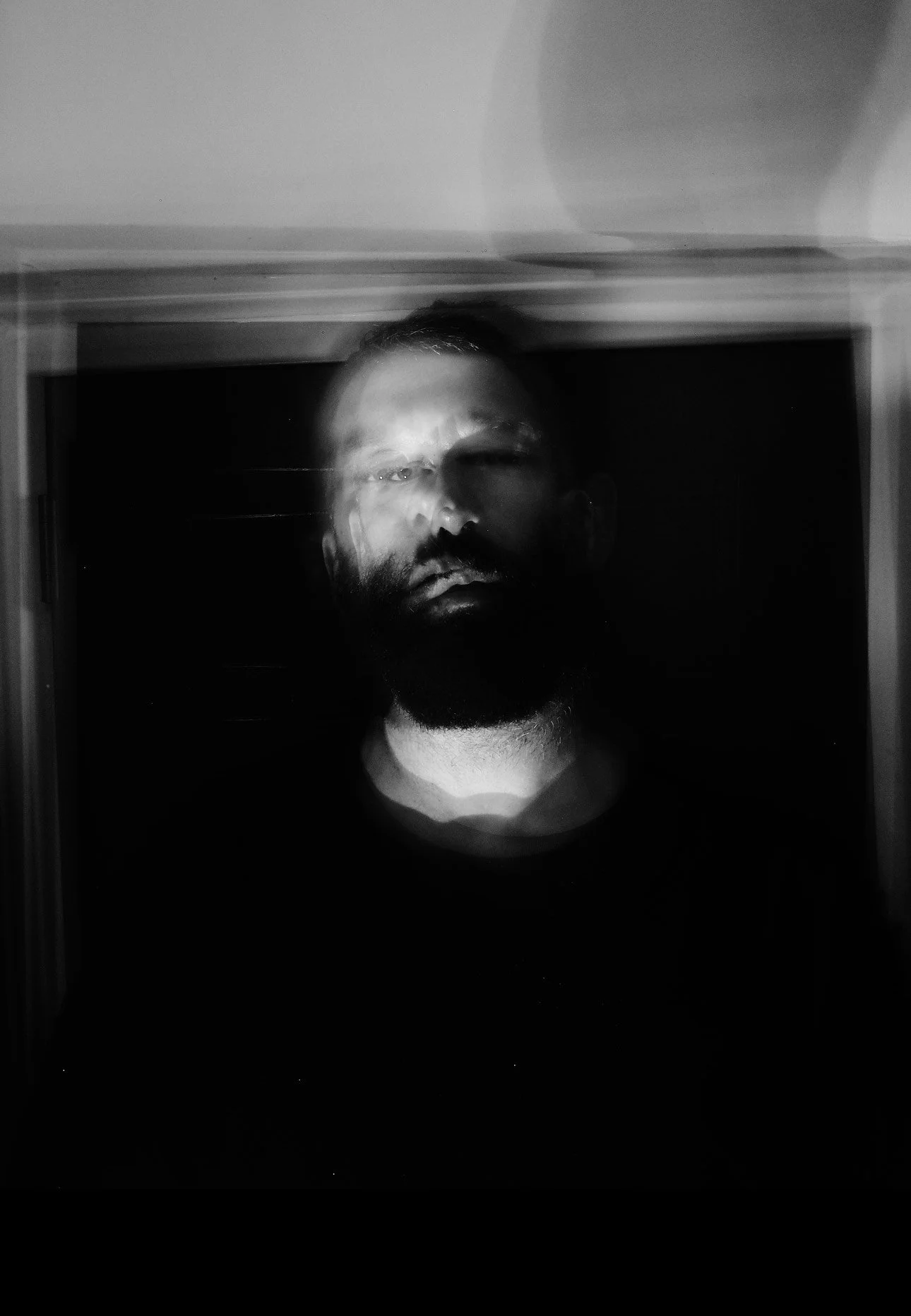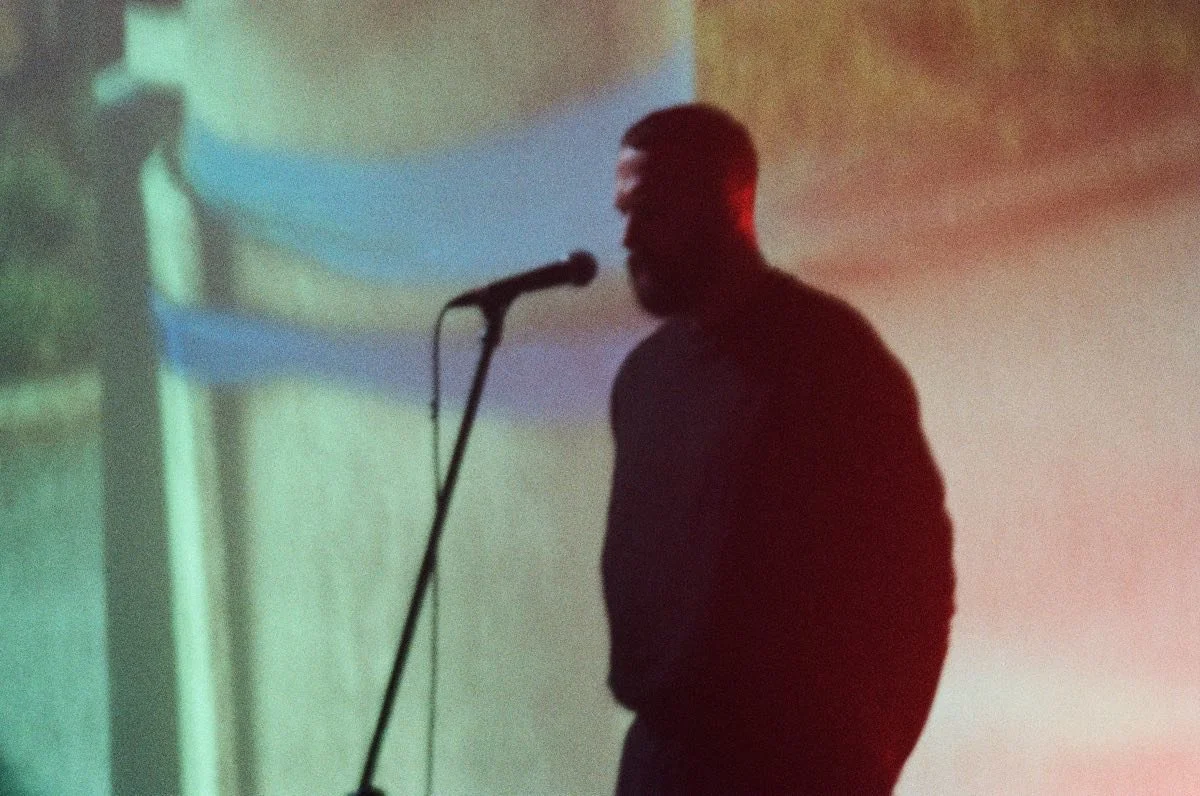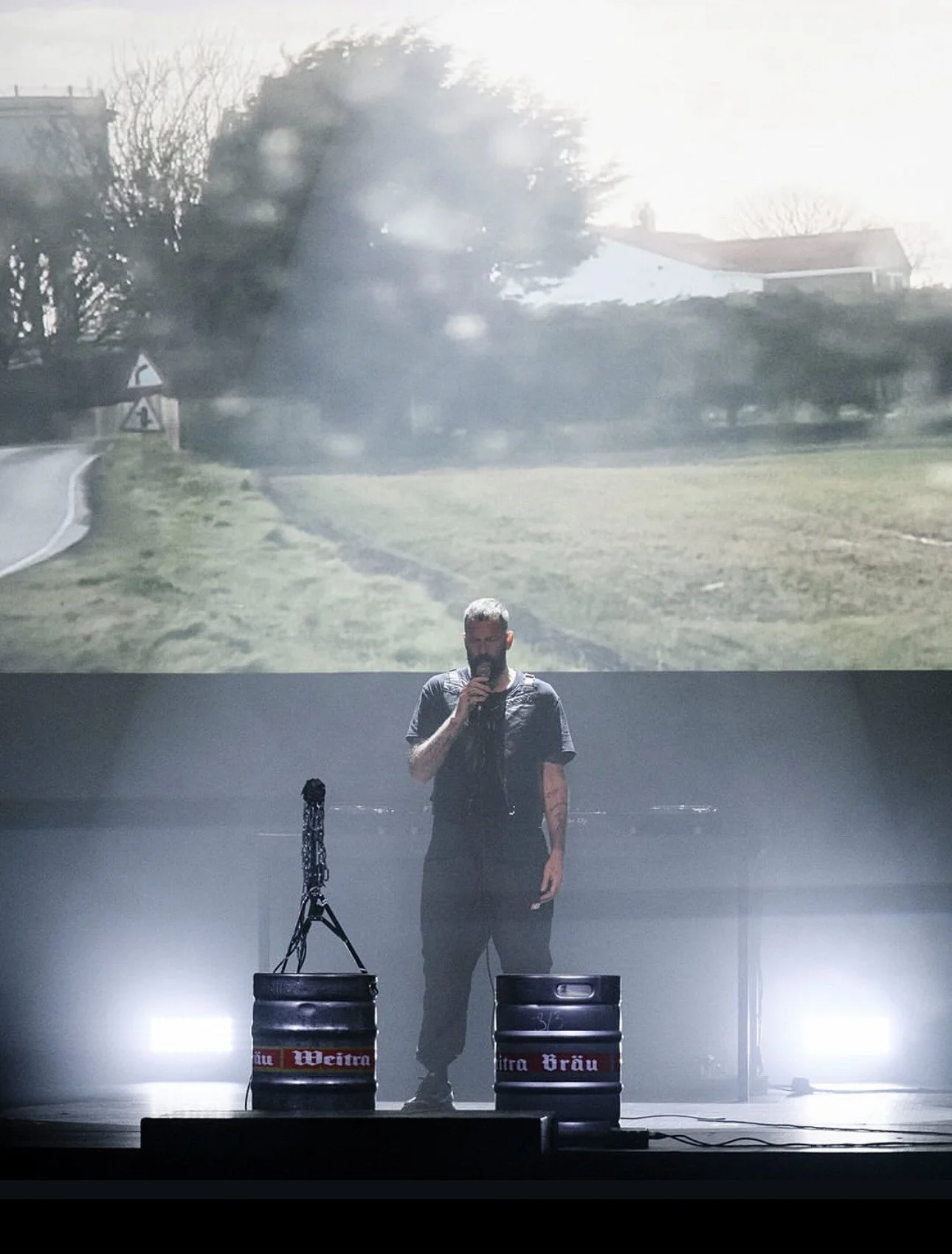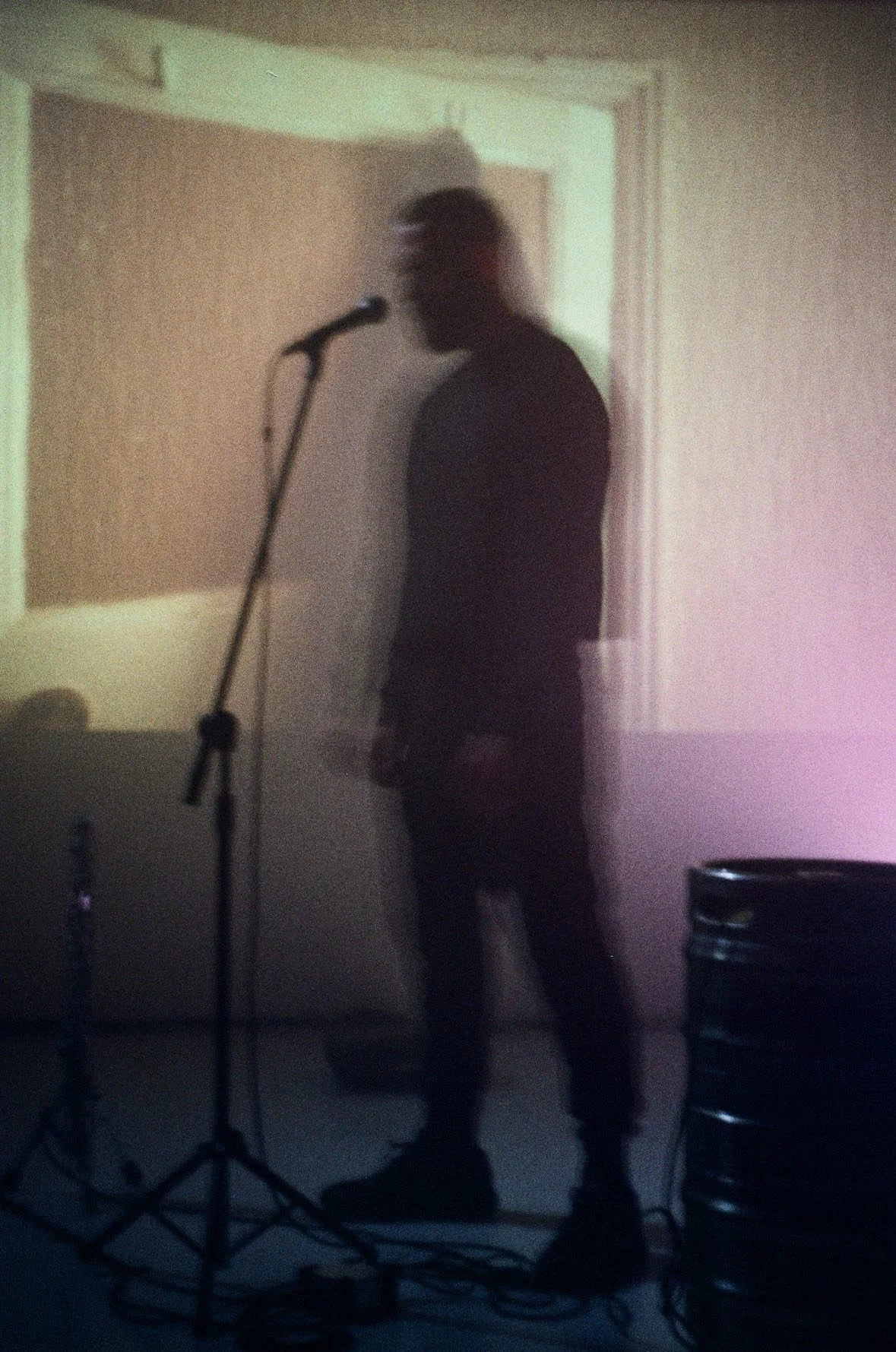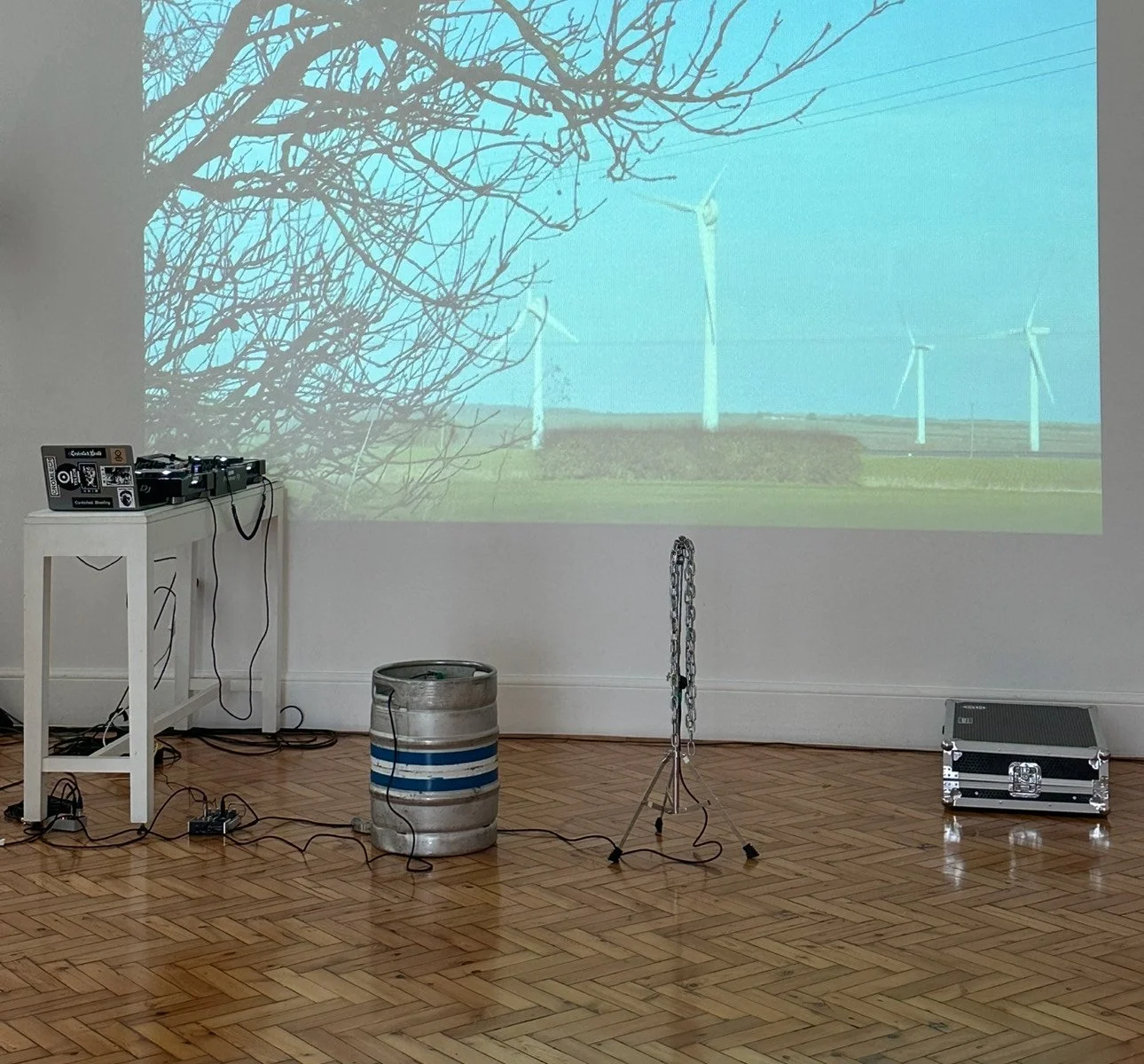Richie Culver
Richie Culver first realised he understood art at an afterparty. Growing up by the North Sea on the outskirts of Hull, the artist spent his formative years reckoning with the gravitational pull of his hometown, wracked by anxiety, aimlessness, and low self-esteem. After leaving school to work in a caravan factory to facilitate a growing rave habit, Culver began to pull focus onto himself in the abandoned warehouses and knackered bedsits of Hull’s party scene.
It was upon staggering to one of many post-rave afters that he was exposed to a book of Nan Goldin’s photographs. Through dense skunk smoke, over the chaos magic incantations of Genesis P-Orridge emanating from punctured speakers, Culver recognised something in the world viewed through Goldin’s lens. “I would look at the pages and understand these images,” says Culver. “This was where I was from. I realised that people were capturing this for a living.” Not long after, he would learn that Throbbing Gristle had formed in the same city he had always felt so trapped by—an epiphany that marked a turning point for the artist at his most embryonic.
Years spent hanging around Hull institution The Lamp, inspired by the presence of local legends Fila Brazillia, Baby Mammoth, Bullitnuts, and other eccentrics orbiting around the cult electronic label Pork Recordings, led to a short-lived period DJing in the early ’90s. This musical foundation would prove crucial to his artistic development, even as personal struggles led to a fraught relocation to Berlin, where the artist proceeded to haunt Berghain every Sunday.
Eventually, the weight of hometown existentialism and a restless search for meaning proved too disruptive for his early musical ambitions. Culver retreated further into what he describes as “a hermit lifestyle”—“underground is too glamorous a label,” he asserts.
Through sobriety and family life, the voice that Culver has forged out of an unflinching commitment to inscribing his outsider observations has come full circle, returning to music. Now based in London, he describes the spoken word that has long been a part of his practice as “like my paintings speaking.” Culver conceives of sound in similar terms, his emotionally charged machine music unfurls as a sonic extension of his text-based visual work. Collaborations with Moor Mother, Billy Woods, Blackhaine, Rainy Miller, Space Afrika, and Mark Leckey have become an integral part of this process, positioning Culver in dialogue with some of the most radical voices in contemporary art and experimental music.
Yet the loose, experimental spirit of the afterparty persists. Culver’s bleak seaside poetry is amplified by threadbare loops worn raw and ragged, spray paint rendered as synthesis. Glacial swells of ambience, industrial throbs of noise, and dark, insomniac drones exhale together as a thick, melancholy haze. Above this drifts the faded pulse of the dance music the artist grew up on, the refracted sounds of the night before filtering deliriously into the morning after.
His 2024 release Hostile Environments marked a significant evolution in his sound, but it’s his album I Trust Pain that represents his most radical reinvention yet. Venturing into “Northern Gothic, squat rap, and concrète drill,” Culver finally manifests his long-held vision of trap music “from the customer’s perspective.” The album sees his visual art practice and music converge more explicitly than ever, with each track relating directly to his paintings and sculptures—not as illustration, but as emotional friction between media.
Performing live in venues ranging from squats and basement bars to Berlin Atonal and Camden Arts Centre, Richie Culver broadcasts live and direct from the fringes. Drawing from a deep well of pain without romanticising the process, he communicates rawness without wrath, and struggle without shame.
booking contact: michelle@potnia-theron.de
